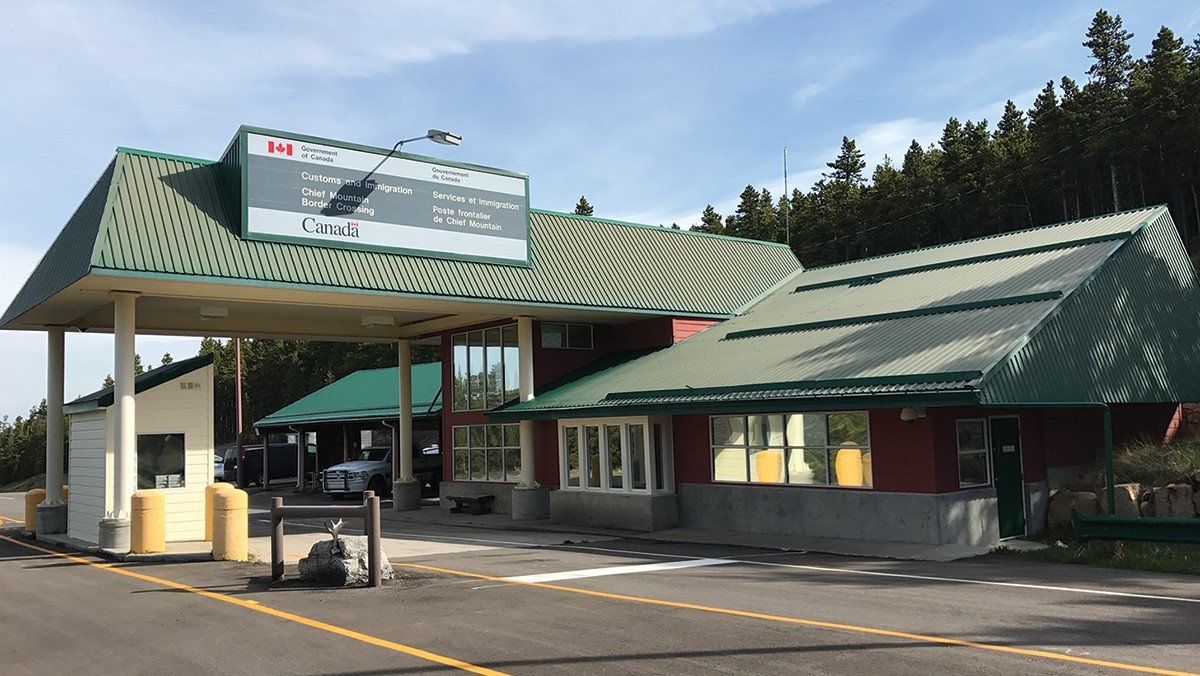If you are planning to cross the border over the Labour Day weekend, be prepared and ready for potentially long waits.
The Canada Border Services Agency (CBSA) says this weekend can get busy, as it is when the country welcomes many international students headed to school, returning residents and travelers enjoying the final long weekend of summer.
Officials say the agency dedicates significant efforts to planning for peak periods, including the summer and long weekends. The CBSA has tips for people crossing the border:
- Check border wait times and anticipate delays.
-
- The agency says early mornings are the best times to cross.
-
- The Monday of holiday long weekends tend to be the busiest.
-
- Consider an alternative port of entry with shorter wait times and make sure to check your port of entry’s operating hours.
- Have all travel documents ready. This will speed up processing times at the border.
- Be prepared to declare.
-
- Declare everything you have with you upon entry to Canada. CBSA says if you are traveling by land, you are responsible for everything in your vehicle. If you are the operator of a boat entering Canadian waters with the plan to disembark, you are responsible for reporting your goods on board.
- If you are traveling with children:
-
- If the child is now your own or one you do not have full legal custody of, CBSA recommends having a consent letter from the parent or legal guardian authorizing you to travel with the child. Officers may ask additional questions if a letter is not provided, as CBSA is always watching for missing children.
- If you are traveling with pets:
-
- Pets must meet specific requirements to enter Canada.
-
-
- As of August 1, 2024, there are updated documentation requirements for all dogs entering the United States from Canada.
-
- If you are flying into Canada:
-
- Use Advanced Declaration to make your customs and immigration declaration up to 72 hours ahead of arriving in Canada at participating airports.
- If you are entering Canada by boat:
-
- You must report to CBSA without delay. Review the reporting requirements for private boaters.
-
-
- If you are towing or transporting a watercraft or any water-related equipment (e.g. a canoe, paddleboard, etc.) into Canada, ensure they are clean, dry and free of any invasive species.
-
If you are bringing certain items into Canada from abroad, it is important to follow these steps.
- Food, plant or animal products: Consult the Automated Import Reference System (AIRS) before bringing any of these items into the country.
- Poultry products: Make sure you review current restrictions on poultry and birds from the United States. Homemade food or leftovers containing poultry cannot be brought into Canada.
- Fireworks: Consult the ‘importing, exporting and transporting fireworks’ page to make sure the fireworks you are bringing into the country are authorized.
- Medication: Ensure you understand your responsibilities when traveling with medication.
- Firewood: Firewood that comes from outside of Canada is not allowed as it could contain diseases or invasive insects.
- Goods purchased abroad: Personal exemptions allow you to bring goods into the country if you are a Canadian resident, including alcohol and tobacco (up to a certain value) without paying regular duty and taxes. Have your receipts readily available for an officer and know how much you are bringing back in Canadian dollars.
-
- Use the CBSA duty and taxes estimator to help estimate the amounts owed on goods that are bought abroad.
There are various items that are restricted or prohibited from being brought into Canada, including:
- Firearms: CBSA says “leave them at home”. You are encouraged to avoid traveling with firearms but if you do, you are asked to check the rules on importing firearms.
- Weapons: Restricted and prohibited goods include pepper spray, switchblades and butterfly knives.
- Narcotics: Narcotics like cocaine and heroin are illegal in Canada. If you are found to be in possession of illegal drugs, either on your person, in your vehicle or in your luggage, you will be arrested and may be charged. The drugs will be seized.
- Cannabis: CBSA says, “Don’t bring it. Don’t take it out”. Cannabis is legal in Canada, but bringing it across the border in any form, including oils containing THC or CBD without a permit or exemption authorized by Health Canada is a serious criminal offence subject to arrest and prosecution. CBSA adds that a medical prescription form from a doctor does not count as Health Canada authorization.
Officials say if you are not sure about something, ask a CBSA officer.
“The best way to save time is to be open and honest with the border services officer. If you are not sure about what to declare, don’t hesitate to ask,” the agency states.
In 2023, CBSA welcomed over 86-million travelers and intercepted over 72,200 kilograms of prohibited drugs, cannabis, narcotics, and chemicals, representing an increase of close to 30 per cent from 2022.
More information on crossing the border is at the CBSA website.







